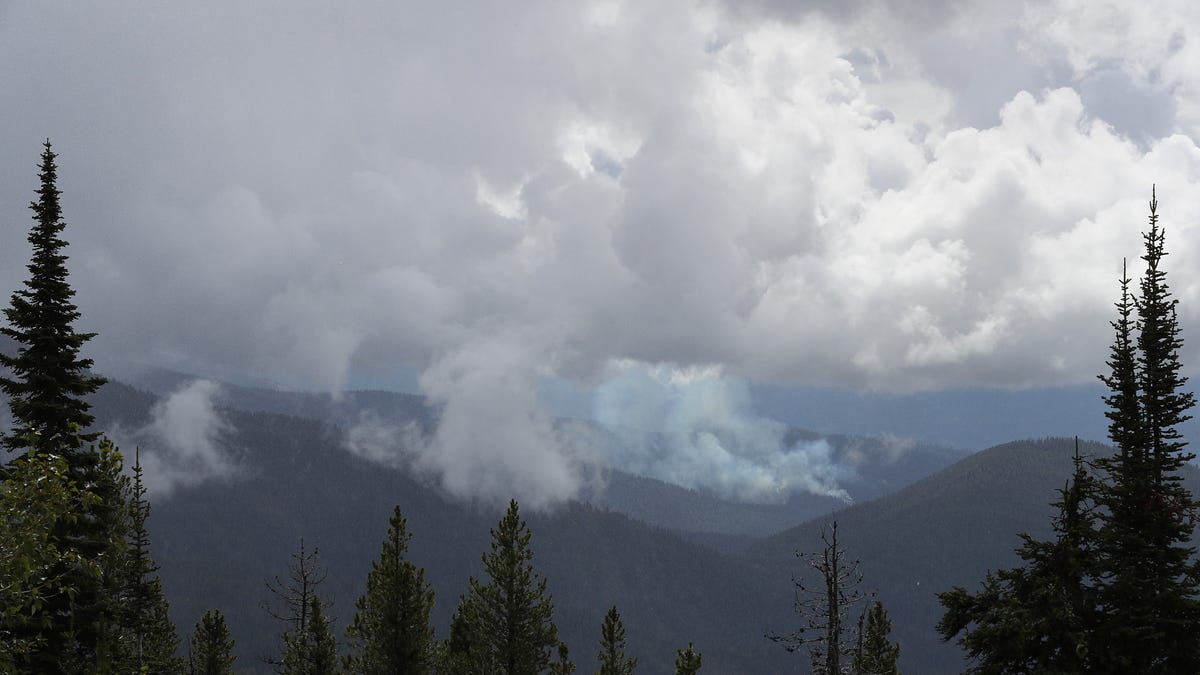The Trump administration notified authors of the National Climate Assessment that the congressionally mandated process is on hold.
Pope Francis leaves legacy of modern values, humble lifestyle
Pope Francis leaves a legacy that embraced diversity, prioritized climate change and committed to humility.
Work has been halted on the next National Climate Assessment, according to an email from the Trump administration, dismissing the more than 400 volunteer scientists and scholars who were its co-authors.
The Congressionally mandated report, produced roughly every four years, summarizes the data and science on how the climate is changing and how that affects the people of the nation, its agriculture and natural resources. By design, the climate assessment, crafted through a period of review and public comment, does not make recommendations.
The scope of the sixth national assessment is “being reevaluated” stated the April 28 email. A banner with similar wording was placed on the assessment’s website several weeks ago.
“As plans develop for the assessment, there may be future opportunities to contribute or engage,” the dismissal email continued.
The dismissal of the report’s authors is one of a series of actions by the administration targeting climate science since Inauguration Day.
A mass firing of staff at the U.S. Global Change Research Program, which supports the work of the assessment, took place earlier this month, according to the Union of Concerned Scientists, a nonprofit science advocacy organization.
USA TODAY previously reported that training meetings for the authors were abruptly canceled in early April with no explanation and members of a National Academies of Sciences committee that advises the research program were told their panel also was disbanded. NASA had ended its contract with the firm that provided staff support to coordinate among the 15 agencies involved in the assessment, saying it was streamlining its support.
Work began on the sixth assessment more than a year ago. Its panel of volunteer experts were appointed last fall, and represented a range of organizations and academic institutions. Scientists who posted to social media accounts months ago about how honored they were to be named to the panel expressed disappointment and frustration in their posts after receiving the dismissal email.
“The Trump administration senselessly took a hatchet to a crucial and comprehensive U.S. climate science report by dismissing its authors without cause or a plan,” said one author, Rachel Cleetus, a senior policy director for the climate and energy program at the Union of Concerned Scientists. “Trying to bury this report won’t alter the scientific facts one bit …”
Dismissing the authors at this point in the complex process of drafting the comprehensive report not only puts it in jeopardy but also places it “at risk of being illegally cancelled altogether,” the scientists group said in a news release.
NASA announced in April that it was working with the White House Office of Science and Technology Policy on how to “best support the congressionally-mandated” assessment.
Temperatures in 2025
The announcement about the assessment comes days after March temperature summaries showed warmer than normal temperatures across much of the world. Scientists said that’s increasing chances that 2025 could be another of the warmest years on record, with little, if any, decline in global average temperatures over 2024, the hottest year on record.
A trio of scientists at Berkeley Earth, including its chief scientist Robert Rohde, concluded that global average temperatures in March essentially tied for the warmest on record. In a monthly update, the scientists wrote: “2025 now has a 34% chance to be the warmest year and 46% chance to be the second warmest year on record.”
If conditions in the tropics remain neutral, there’s “a good chance that 2025 may even exceed the 2024 record high global temperature,” climate scientists James Hansen and Pushker Kharecha, with Columbia University’s Earth Institute, reported in April.
How did the National Climate Assessment start
The assessment grew out of an initiative by President George H. W. Bush in 1989. In 1990, Congress approved the Global Change Research Act, co-sponsored by 26 senators – 15 Democrats and 11 Republicans.
It directed the president to establish the research program to produce an assessment “at least every four years” with its findings about the impacts of global change, the long-term trends and any associated uncertainties.
Among other things, the Act also declared the president should direct the Secretary of State to initiate discussions with other nations on international agreements to coordinate global change research and a research protocol for cooperating on energy technology development with minimal adverse effects on the environment.
The assessment and the global change program were targeted in the Heritage Foundation’s Project 2025, which accused federal scientists of “climate alarmism.” Although Trump distanced himself from Project 2025 during his presidential campaign, his administration already has taken action on many of its recommendations.
Project 2025 authors recommended the president reshape the program, saying it reduces the scope of legal options available to the president in decision-making. They also recommended the scientific assessment “include diverse viewpoints” and that the contractors that conduct research should be assessed by the White House Office of Science Technology and Policy and the Office of Management and Budget.
However, others question whether the president has the authority to influence the climate assessment at all.
Author and climate scientist Michael Mann said dismissing the assessment’s authors is another example of the president “violating the constitutional separation of powers.”
“The National Assessment is congressionally-mandated. The president does not have legal authority to dismiss it,” Mann said. “We must recognize that Trump and his enablers have no respect for law and no respect for the constitution.”
Cleetus said Congress “must step up to ensure the report it requires by law is conducted with scientific integrity and delivered in a timely way.”
Dinah Voyles Pulver, a national correspondent for USA TODAY, has covered the environment, climate change and other news for decades. Reach her at [email protected] or @dinahvp on Bluesky or X or dinahvp.77 on Signal.
